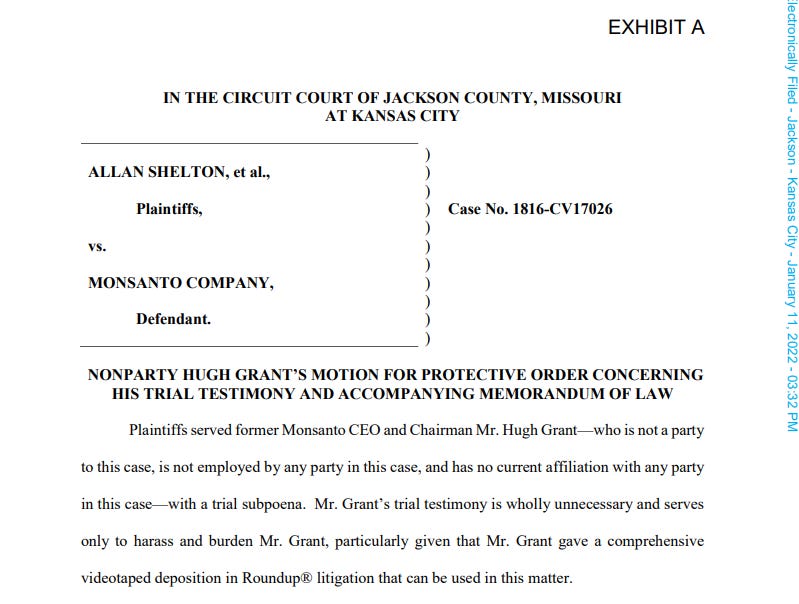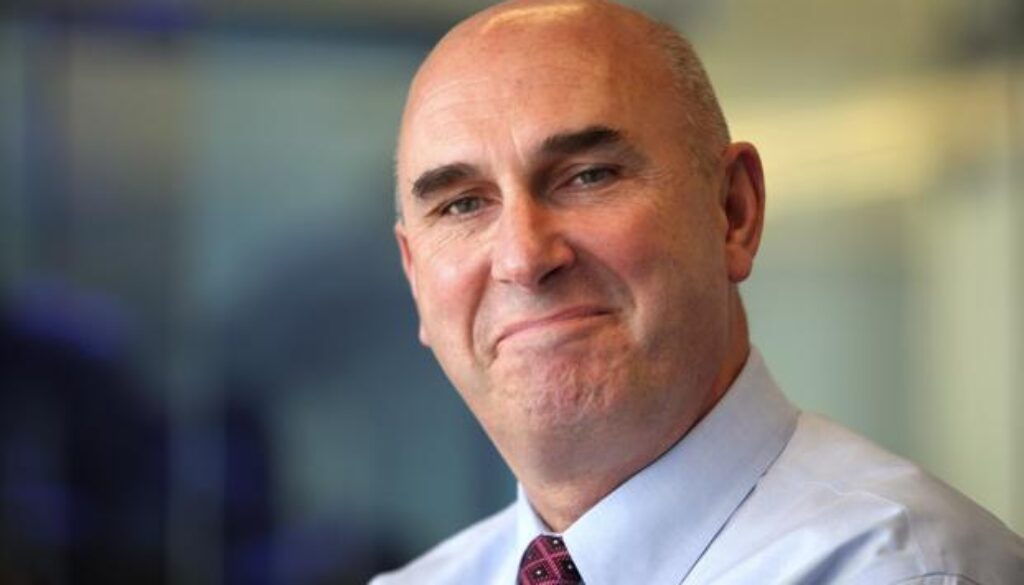Former Monsanto CEO files for protective order in Roundup case
Former Monsanto Co. Chairman and CEO Hugh Grant is appealing a judge’s order that would allow lawyers for a cancer patient to question him on the stand in a trial scheduled to start next month in Kansas City.
Lawyers for the former Monsanto executive filed a flurry of documents with the Missouri Court of Appeals Western District on Friday seeking to quash a subpoena compelling Grant to testify in person in the case of Allan Shelton v Monsanto.
The trial of the civil suit is set to begin May 2 in Kansas City, Missouri.
Shelton suffers from non-Hodgkin lymphoma (NHL) and is one of more than 100,000 people around the United States who have alleged in lawsuits that exposure to Monsanto’s Roundup weed killer, and other company herbicide brands made with a chemical called glyphosate, caused them to develop NHL.
Shelton’s lawyers have argued that he was an active participant and decision maker in the company’s Roundup business and should be made to testify at the trial, but Grant’s lawyers argue that Jackson County Circuit Court Judge Charles McKenzie’s approval of a subpoena for Grant to testify at trial was “in excess” of the judge’s authority and “an abuse of discretion.”
Grant’s lawyers want the appeals court to issue a “writ of prohibition” and order the judge to take no further action other than to grant a protective order for Grant in the case.
Grant claims in the filings that the effort to put him on the stand in front of a jury is “wholly unnecessary and serves only to harass and burden” him. He notes in the filings that he left Monsanto in 2018 (when the company was sold to the Germany company Bayer AG), and that he already has given a “comprehensive videotaped deposition” in the nationwide Roundup litigation that can be presented at this trial.
Grant’s testimony “would be of little value” because he is not a toxicologist, an epidemiologist, or a regulatory expert and “did not work in the areas of toxicology or epidemiology while employed by Monsanto,” the court filings state. Grant does not have “any expertise in the studies and tests that have been done related to Roundup® generally, including those related to Roundup safety,” his lawyers argue.
“Mr. Grant’s testimony would add nothing to the core issues involved in this case,” his lawyers state in one of the filings.

Grant’s attorneys also argue that if Grant is obligated to appear in person at the Kansas City trial it would set a precedent that would become “beyond burdensome and oppressive,” and would potentially ‘“open the floodgates to similar trial subpoenas in dozens of cases.”
The Shelton case is one of 14 similar cases currently set for trial in Missouri, according to Grant’s lawyers.
His lawyers note that Grant was deposed for five hours in Feb. 4, 2019, and say that he had “only general and high-level knowledge of the issues central to this litigation.”
For Grant, “there will be significant burden, expense, annoyance, and oppression” if he is “compelled to appear for trial,” his lawyers state in their appeal to the court.
U.S. Roundup litigation began in 2015 after the International Agency for Research on Cancer classified glyphosate as a probable human carcinogen. Internal Monsanto documents dating back decades show that the company was aware of scientific research linking its weed killer to cancer but instead of warning consumers, the company worked to suppress the information and manipulate scientific literature.
Bayer, which bought Monsanto just as the first Roundup cancer trial was getting underway in 2018, has said it will remove Roundup and other glyphosate products from the U.S. consumer market in 2023 as a means to try to limit future lawsuits. Additionally, Bayer is working to settle all outstanding litigation and has agreed to pay out more than $11 billion in that effort.
The company maintains, however, that glyphosate products are safe and do not cause cancer.
 EWG
EWG


